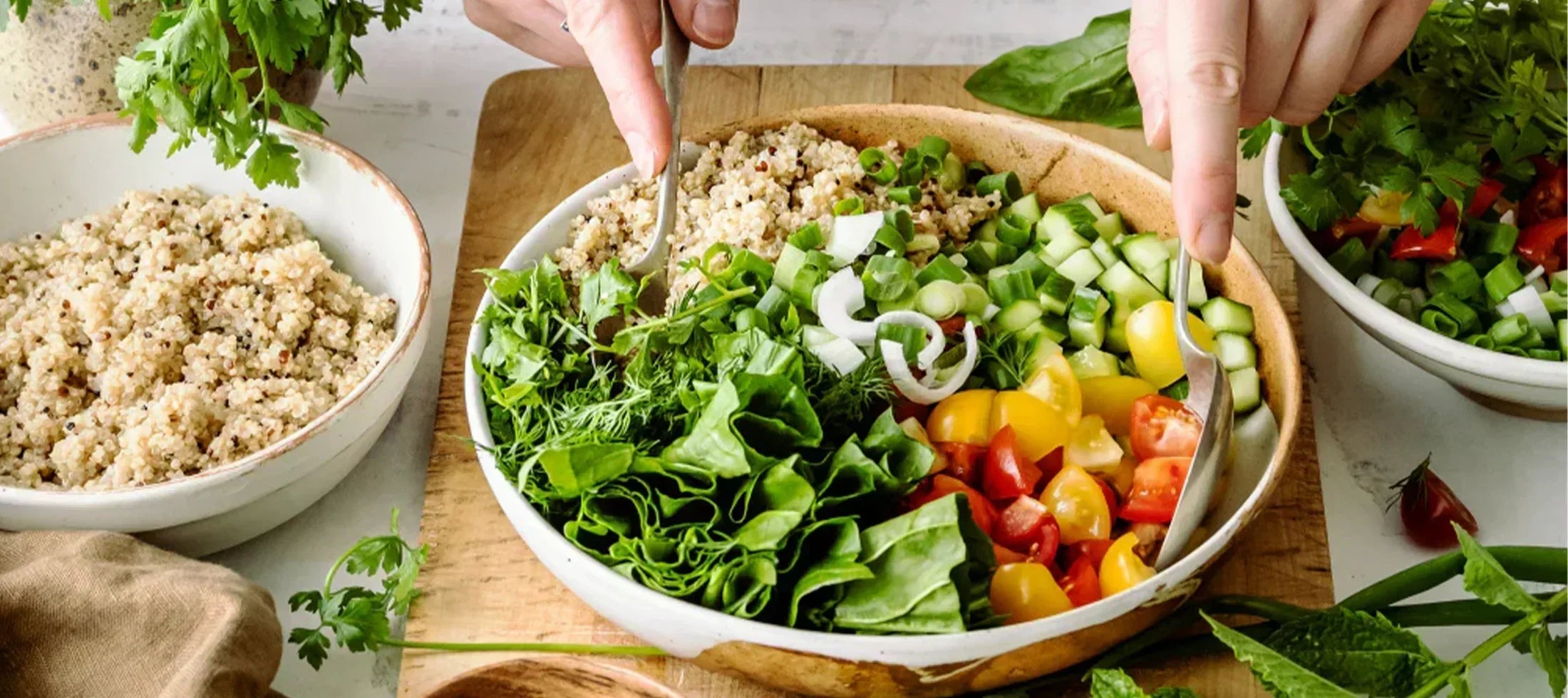Is getting started with plant-based diets tough? Or is eating plants boring? Well, not. If done correctly, plant-based diets are taking over the world with their flexibility in today’s era.
What Is Plant-Based Eating? Is It the Same As A Vegan Diet?
Plant-based eating is a diet in which the main idea revolves around eating more plants or plant-based sources. From this, a person can consume a wide variety of fruits, vegetables, seeds and nuts, beans and lentils, whole grain cereals, and different healthy oils. You can still occasionally experience animal proteins and dairy products because plant-based eating is less strict and more resilient than a purely vegetarian diet.
Are Plant-Based Diets Nutritional And Beneficial?
Plant-based diets are less processed, contain more fiber, are low in saturated fats, heavily enriched with minerals, vitamins, and phytochemicals that help reduce inflammation and manage blood pressure and cholesterol. Plant-based eating reduces the risk of diabetes, cardiovascular diseases, cancer, and many other chronic diseases. It also helps in preventing obesity and in maintaining a steady weight loss journey. Moreover, promoting plant-based eating is healthy for the environment and ultimately for the planet.
5 Tips From Dieticians To Get Started With Plant-Based Eating

However, if you want to add plant-based eating to your diet, it may become overwhelming and confusing to get started with or to understand the basics. So here are 5 tips from dieticians to get started with plant-based eating.
1. Set Your Priorities
The first and most crucial step for transitioning into a plant-based diet is to set your priorities straight. Find motivation to carry on your goals and objectives. When the situation gets a little tough, focus on ‘’why’’ you have started this journey. For more effectiveness, make choices based on your morals rather than trends and fads.
2. Start Easy
Burdening yourself to eat more greens will get you nowhere. Instead of pushing yourself way too hard, try to start slow and easy. Start with making alterations to one meal at a time and focus on maintaining that rather than changing your whole diet all at once.
3. Educate Yourself About Nutrients
Know that shifting to a strict plant-based diet can cause low levels of some nutrients such as iron, zinc, omega fatty acids, vitamin B12, or protein. Add dietary supplements with plant-based diets or add a side serving of an animal-source protein to prevent these deficiencies.
4. Plan Your Meals
Stocking up food items and preparing your meals can be a huge life hack. It is easy on the budget, yet more nutritional. You can add your favorite preferences to your meals and can easily replace an unhealthy snack with a much healthier plant-based bite.
5. Add Variety And Colors
Adding different colored veggies and fruits to your diet can bring a wide range of variety. Adding more colors to your plate will spice up your meals and deliver more nutrients so you can experience various health benefits.
Bottom Line
Shifting to a plant-based diet can be a little tricky. But following these tips, you will experience wonders. Find your purpose and set the priorities. Go easy on yourself and educate yourself with the basics. Plan your meals and replace unhealthy snacks with a more colorful and healthier option.
FAQs:
How to eat a good plant-based diet?
A good plant-based diet focuses on whole, minimally processed foods. It includes a variety of fruits, vegetables, legumes, whole grains, nuts, and seeds to ensure balanced nutrition. Rotate protein sources like beans, lentils, tofu, and tempeh to avoid deficiencies. Don't forget healthy fats from avocados, olive oil, or flaxseeds. Fortified foods or supplements for vitamin B12, vitamin D, and omega-3 are also important. Staying hydrated and eating in moderation helps maintain energy and health.
What is the 80/20 rule for vegans?
The 80/20 rule for vegans means eating whole plant foods 80 percent of all the time and allowing 20 percent for flexible options. The 80 percent includes nutrient-dense foods like fruits, vegetables, legumes, grains, and nuts. The remaining 20 percent may include processed vegan foods like plant-based burgers, snacks, or desserts. This approach makes the lifestyle sustainable without feeling too strict. It balances nutrition while still allowing room for enjoyment.
How to eat enough on a plant-based diet?
To eat enough on a plant-based diet, focus on calorie-dense and protein-rich foods. Whole plant foods are rich in fiber, which fills you up quickly but may leave you low on calories. Include foods like beans, lentils, quinoa, nuts, seeds, and avocado to boost energy intake. Eating balanced meals throughout the day with snacks helps maintain sufficient calories. Smoothies, nut butters, and cooked grains are excellent for meeting higher energy needs. Tracking intake at first can prevent under-eating.
What can beginners eat on a plant-based diet?
Beginners on a plant-based diet should start with simple and familiar whole foods. Great starting points include fruits, vegetables, legumes like chickpeas and lentils, and whole grains such as oatmeal, brown rice, and whole-wheat pasta. You can make easy swaps, like using almond milk on your cereal or making a sandwich with hummus and veggies instead of meat. Tofu and tempeh are also very versatile and can be added to stir-fries or salads. Focus on meals you already enjoy and adapt them to be plant-based.
Which plant-based food is highest in protein?
Soy products like tempeh and tofu are among the highest protein plant foods. Tempeh provides around 19 grams of protein per 100 grams, while firm tofu has about 8 grams. Lentils, chickpeas, and beans are also strong sources, providing 9-15 grams per cup cooked. Seitan, made from wheat gluten, is another protein-rich option with nearly 25 grams per 100 grams. Combining different plant proteins ensures a complete amino acid profile. This variety makes it easier to meet daily needs.




Share:
How to Determine The Best Diet For You?
Top High Protein Foods for Muscle Building